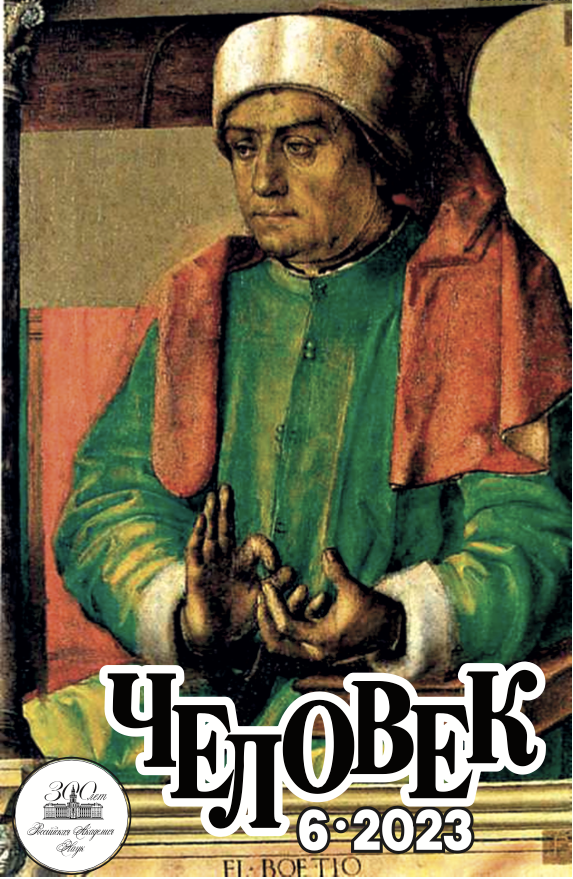“Remember that You are a Human Being”: On the Formation of the Category of the Personality in the Works of Mauss and Boethius
Keywords:
individual, subject, personality, Trinitarian disputes, Christological disputes, dialogue, substance, nature, anthropology, theologyAbstract
The concept of personality may seem intuitively clear, but it is not easy to define or explain. It is often considered a transcultural and transhistorical universality. However, Marcel Mauss demonstrates that different cultures have varying understandings of what an individual represents. Boethius' definition is considered an important turning point, but how did he arrive at such a definition, and why did it have such a significant impact? Although many researchers have attempted to answer this question, no definitive answer has been found. This article aims to approach an answer by combining two perspectives: historical andphilosophical analysis of ideas and textual analysis. That is, оn the one hand, the article shows how the concept of personality arose during Christological and Trinitarian disputes. However, the resulting concept appears abstract, logically inconsistent, and not very applicable to humans. On the other hand, the article analyzes Boethius' texts, their communicative and dialogical direction towards the Other and towards oneself in the face of the Other. It is here that the concept takes on flesh: as Boethius not only explains the concept of personality but also demonstrates how it works.






